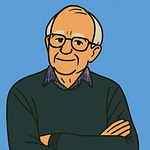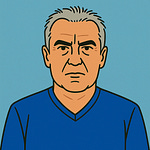His latest book, "Pax Economica: Left-wing Visions of a Free Trade World" (Princeton University Press, 2024), was recognized among the best books of 2024 by both The New Yorker and Financial Times. His research focuses on the political economy of trade, economic nationalism, and the intersection of domestic and international politics in the late 19th and early 20th centuries.
In this illuminating conversation, Dr. Marc Palen challenges everything we think we know about free trade by revealing its forgotten progressive history. While today's free trade is associated almost exclusively with right-wing economics and corporate globalisation, Palen's groundbreaking research uncovers a powerful tradition where socialists, peace activists, and anti-imperialists championed free trade as a tool for international cooperation and social justice.
The discussion explores the crucial distinction between what Palen calls the "Marx-Manchester tradition"—socialist internationalists who saw free trade as progressive—and the "Marx-List tradition" of socialist nationalists who embraced protectionism. We examine how figures like Karl Kautsky and Lenin represented these different approaches, and why the protectionist tradition ultimately became dominant within left-wing movements.
Dr. Palen explains his concept of the "unholy trinity"—neo-colonialism, neo-mercantilism, and neo-liberalism—that hijacked and corrupted the left-wing vision of free trade after 1945. The conversation also addresses contemporary relevance, from Trump's tariff policies that echo 1890s protectionism to how artificial intelligence might fundamentally alter the economic rationales for international trade.










